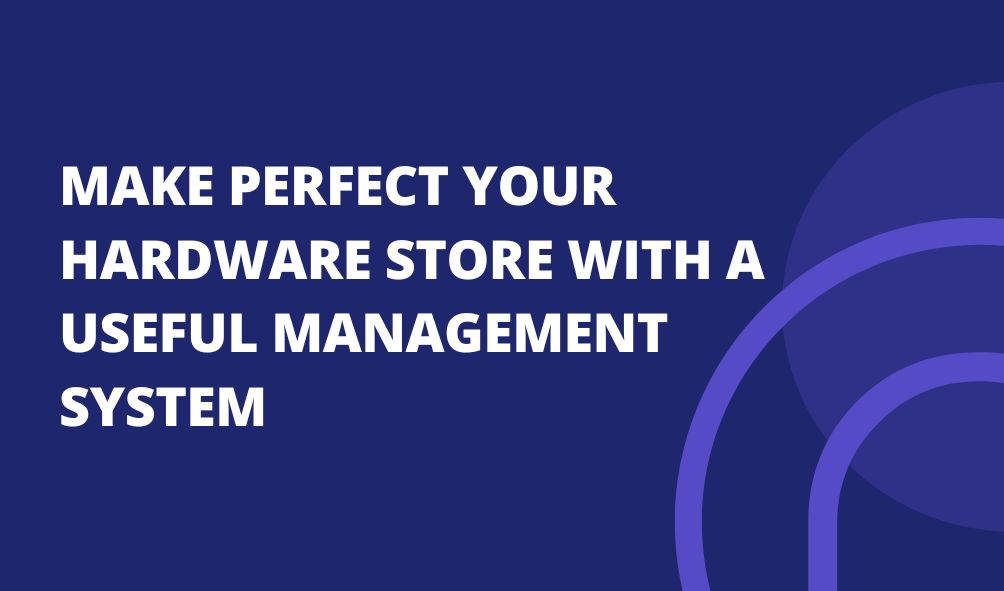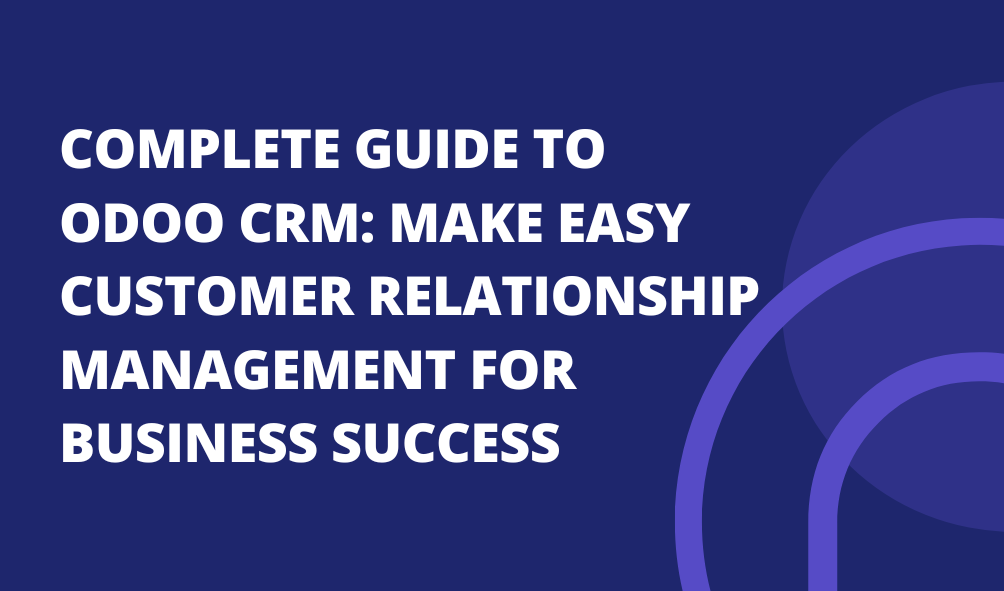Best Business Management Solutions: Choosing the Right Software for Your Industry
Running a business is more complex than ever. Companies must manage sales, inventory, customer relationships, finances, and compliance while staying competitive. To handle these challenges, businesses are adopting Business Management Solutions—software designed to streamline operations, improve efficiency, and reduce manual work.
Different industries have unique needs. A POS Retail Solution helps stores process sales smoothly, while an Insurance Management System handles policy and claims management. Cloud-based business software allows teams to access data anytime, improving decision-making and teamwork.
With automation, businesses can eliminate repetitive tasks, reduce errors, and enhance productivity. The right Business Management Software ensures smoother workflows, better customer service, and higher profitability.
In the next section, we’ll explore the key benefits of Business Management Solutions and how they impact different industries.
Key Benefits of Business Management Solutions
Adopting the right Business Management Solution can transform how a company operates. Whether it's a small business or a large enterprise, the right software helps automate tasks, improve accuracy, and boost efficiency. Here are the key benefits:
1. Automation Reduces Manual Work
Managing daily operations manually is time-consuming and prone to errors. With business management software, tasks like inventory tracking, invoicing,
appointment scheduling, and customer interactions can be automated, saving time and effort.
2. Improved Decision-Making with Real-Time Data
Modern cloud-based business software provides real-time analytics and reports. This helps businesses make informed decisions about sales, finances, and customer trends, leading to better planning and profitability.
3. Enhanced Customer Experience
A smooth customer experience builds loyalty. Solutions like CRM software, helpdesk management, and appointment scheduling tools ensure quick responses and personalized services, improving customer satisfaction.
4. Scalability for Business Growth
As businesses grow, their management needs become more complex. Industry-specific management systems allow companies to expand without struggling with outdated processes. Whether it’s a POS system for retail or a Hotel Management System, scalable software adapts to business growth.
5. Better Compliance & Security
Many industries, such as insurance, healthcare, and finance, require strict compliance with regulations. Business management software ensures data security, accurate record-keeping, and regulatory compliance, reducing legal risks.
6. Cost Savings & Higher Efficiency
Automating processes helps businesses reduce labor costs, minimize human errors, and optimize resources. This leads to faster operations, lower expenses, and increased revenue.
Business Management Solutions for Different Industries
Each industry has unique challenges that require specialized business management solutions. The right software can help businesses automate tasks,improve efficiency, and ensure compliance. Below, we explore the best solutions for different industries.
1. Retail & Sales Industry
Retail businesses require efficient sales processing, Like Best POS Software, Best inventory tracking, and customer management. A POS Retail Solution simplifies sales transactions, automates billing, and provides real-time stock updates. It helps businesses avoid overstocking or running out of popular products.
For businesses operating in Saudi Arabia, POS Sale Retail Shop KSA E Invoicing ensures compliance with local regulations. The system generates tax-compliant invoices, automates VAT calculations, and prevents manual errors.
Additionally, Access Management solutions help retailers control employee and customer access to restricted areas. This enhances security, prevents unauthorized access, and ensures that sensitive business data remains protected.
2. Service-Based Businesses
Service businesses, such as salons, clinics, and consulting firms, rely on efficient appointment scheduling. Appointment Management Software automates bookings, sends reminders to clients, and reduces missed appointments, improving customer satisfaction.
Helpdesk Management Software is essential for businesses handling customer inquiries. It provides ticketing systems, automated responses, and complaint tracking to improve response times and customer service.
For businesses that rely on recurring revenue models, Subscription Management Software automates billing, invoicing, and renewal reminders. This ensures seamless payment collection and improves cash flow.
3. Healthcare & Laboratories
Hospitals and labs manage patient records, test reports, and compliance with strict healthcare regulations. A Pathology Lab Management System streamlines operations by automating lab test scheduling, maintaining patient history, and ensuring regulatory compliance.
Healthcare providers also benefit from a Survey Management System, which gathers patient feedback to improve services. This helps clinics and hospitals understand patient needs, enhance service quality, and maintain high standards.
4. Legal & Compliance-Based Businesses
Law firms and legal consultants need an efficient system to organize case records, track clients, and manage legal documentation. A Law Management System automates document handling, court scheduling, and communication with clients, making legal processes more efficient.
For businesses involved in government contracts, a Tender Management System simplifies the bidding and procurement process. It helps manage documentation, track submission deadlines, and ensure compliance with procurement laws.
5. Property & Hospitality Management
Managing rental properties, tenants, and financial records manually can be time-consuming.
A Property Management System automates rent collection, tracks lease agreements, and provides financial insights for landlords and property managers.
Hotels require Hotel Management Software to handle room reservations, guest check-ins, billing, and housekeeping. This software enhances the guest experience by offering seamless booking and faster service.
Event organizers benefit from an Event Seat Booking System, which automates ticket sales, assigns seating, and provides real-time availability updates. This eliminates errors and improves the booking experience for customers.
6. Automobile & Hardware Businesses
An Auto Parts Management System helps auto businesses track spare parts, manage orders, and monitor inventory levels. It reduces the risk of overstocking or shortages and improves customer service.
Similarly, a Hardware Store Management System provides that suppliers, stock levels, and sales are efficiently managed. Businesses can track their best-selling products and optimize supply chain operations.
7. Transport & Logistics Industry
A Bus Booking Management System helps transport companies manage ticket bookings, schedules, and seat availability. It allows customers to book tickets online, reducing manual work for operators.
For urban areas, a Parking Management System automates parking space tracking and payments. It eliminates the hassle of manual ticketing and improves traffic flow in busy parking areas.
8. Specialized Business Solutions
Insurance companies require a comprehensive system to manage policies, claims, and customer records. An Insurance Management System ensures efficient policy administration, fraud detection, and compliance tracking. It speeds up claim settlements and improves customer satisfaction.
Many businesses also rely on Third-Party Apps, such as Trello and TaxJar Connectors, to integrate their existing systems with ERP solutions. These tools Improve collaboration, automate tax calculations, and improve workflow management.
How to Choose the Right Business Management Software
Selecting the right Business Management Solution is essential for improving efficiency, reducing costs, and scaling your business. With various software options available, businesses need to evaluate their needs before making a decision. Here are the key factors to consider:
1. Identify Your Business Needs
Every industry has different challenges, so the first step is understanding your specific requirements. A retail business may need a POS system to manage sales and inventory, while a law firm might require a legal case management system. Start by identifying the processes you want to automate and the problems you need to solve.
For example, a hotel may need a Hotel Management System to streamline guest reservations, billing, and housekeeping, while an insurance company would benefit from an Insurance Management System to handle policy administration and claims processing.
2. Industry-Specific vs. General Business Software
Some businesses require industry-specific software that caters to their specialized needs, while others can function with general business software like ERP and CRM systems.
An industry-specific solution, such as a Property Management System, is designed for real estate companies to track tenants, leases, and financial records. On the other hand, a general ERP system may be used across various industries to manage finances, supply chains, and operations.
If your business has highly specific workflows, it’s best to choose a custom or industry-specific solution rather than a generic one.
3. Cloud-Based vs. On-Premise Software
Choosing between cloud-based and on-premise software depends on your business's operational model.
Cloud-based software allows access from anywhere and is maintained by the provider, making it ideal for businesses that need flexibility and remote accessibility. CRM Advance, for example, enables businesses to manage customer interactions from any location.
On-premise software, installed on company servers, offers greater control over security and data privacy. Access Management Software is often preferred for organizations that require strict internal security measures.
Businesses that operate in multiple locations or require frequent updates usually benefit more from cloud-based solutions, while those handling sensitive data may prefer on-premise systems.
4. Scalability & Integration Capabilities
The right software should support your business as it grows. A scalable solution ensures that new features, users, or modules can be added as needed without disrupting operations.
For example, a Subscription Management Software should be able to handle an increasing number of customers and payment methods as the business expands. Similarly, a POS Retail Solution should support multiple locations and growing product catalogs.
Integration is another critical factor. Your business software should seamlessly connect with ERP, CRM, accounting, and third-party applications to create a unified workflow. Third-party apps like Trello & TaxJar Connectors are excellent for integrating task management and tax automation within an ERP system.
5. User-Friendliness & Training Support
Complicated software can slow down adoption and increase training costs. The best solutions are designed with user-friendly interfaces, reducing the need for extensive training.
Look for software that offers intuitive dashboards, automation features, and easy navigation. Helpdesk Management Software, for instance, provides a simple interface for customer service teams to resolve tickets efficiently.
Many software providers offer training materials, customer support, and demo versions, allowing businesses to test the software before making a final decision.
6. Security & Compliance Requirements
Businesses handling financial transactions, legal data, or customer records must ensure that their software complies with industry regulations and protects sensitive information.
Look for features such as data encryption, multi-level access control, and compliance with local and international regulations. An Insurance Management System, for example, must meet strict compliance standards to protect policyholder data and prevent fraud.
Security features like automated backups, fraud detection, and access control help businesses maintain trust and avoid regulatory penalties.
7. Cost & Return on Investment (ROI)
While pricing is a key consideration, focusing only on cost can be a mistake. The cheapest software might not offer the necessary features, while an expensive solution may not provide the best value.
Businesses should assess the long-term benefits of the software. A POS Retail Solution, for example, might have an upfront cost, but its ability to speed up transactions and improve inventory management can lead to higher revenue over time.
Consider the total cost of ownership, including subscription fees, implementation costs, and potential upgrades. Evaluate the software’s impact on efficiency and revenue growth to ensure a positive return on investment.
Future Trends in Business Management Software
The landscape of Business Management Solutions is evolving rapidly, driven by technological advancements and changing business needs. Companies that embrace these innovations will gain a competitive edge, improving efficiency and customer satisfaction. Here are the key trends shaping the future of business management software:
1. Artificial Intelligence (AI) & Automation
AI-powered software is transforming the way businesses operate. From automated customer support chatbots to AI-driven data analysis, businesses can streamline processes, reduce manual work, and make smarter decisions.
For example, AI-powered CRM software can analyze customer interactions, predict buying behavior, and automate follow-ups, helping businesses improve sales and customer relationships. Similarly, Insurance Management Systems use AI to detect fraud, automate claim approvals, and enhance risk assessment.
2. Cloud-Based & Remote Access Solutions
Cloud computing is no longer optional—it's a necessity. Cloud-based business management software allows businesses to access data from anywhere, collaborate in real time, and scale operations without investing in expensive hardware.
For example, a Hotel Management System can enable hotel staff to check reservations, update room availability, and manage billing from any location. Likewise, POS Retail Solutions integrated with the cloud allow retail businesses to monitor sales and inventory across multiple locations.
With more businesses adopting remote work models, cloud-based tools ensure seamless connectivity, making it easier to manage teams, finances, and operations from any device.
3. Internet of Things (IoT) Integration
The Internet of Things (IoT) is enhancing business operations by connecting devices and gathering real-time data. Businesses can use IoT-enabled systems to improve efficiency, security, and customer service.
For example, in Parking Management Systems, IoT sensors can track available spaces and guide drivers to open slots, reducing congestion. Similarly, Event Seat Booking Systems can use IoT to optimize venue layouts and provide real-time seating availability updates.
Industries like logistics, healthcare, and manufacturing are also leveraging IoT for real-time tracking of assets, predictive maintenance, and automated inventory management.
4. Advanced Data Analytics & Business Intelligence
Modern businesses generate vast amounts of data, but analyzing and utilizing that data effectively is key. Business Intelligence (BI) tools help organizations gain insights, identify trends, and make data-driven decisions.
For example, Property Management Systems can analyze rental trends to optimize pricing, while Auto Parts Management Systems can predict demand and suggest inventory adjustments.
With real-time reporting dashboards and predictive analytics, businesses can improve forecasting, reduce operational costs, and enhance overall efficiency.
5. Blockchain for Security & Transparency
Blockchain technology is emerging as a game-changer in sectors that require secure transactions and transparent record-keeping. Industries such as insurance, finance, and legal services are adopting blockchain to ensure tamper-proof data storage.
For example, Insurance Management Software can use blockchain to verify policyholder information, prevent fraud, and ensure transparent claim settlements. Similarly, Tender Management Systems can leverage blockchain to maintain an unalterable record of bidding processes, ensuring fairness and compliance.
As security threats continue to rise, blockchain adoption in business management software will likely grow, providing enhanced data integrity and fraud prevention.
6. Enhanced Personalization with AI & Machine Learning
Customers now expect personalized experiences, and AI-driven software is making it possible. Business management solutions can use machine learning algorithms to tailor services based on user behavior and preferences.
For example, CRM Advance Software can suggest personalized marketing campaigns based on customer history, while Hotel Management Systems can recommend room upgrades based on guest preferences.
This level of customization helps businesses build stronger relationships with customers, improve engagement, and drive higher revenue.
7. Seamless Software Integrations
Modern businesses use multiple software tools, and seamless integration between them is essential. Future business management solutions will focus on enhanced API integrations to ensure smooth data flow between different systems.
For example, Third-Party Apps like Trello & TaxJar Connectors help businesses integrate project management and tax automation within their ERP systems. Similarly, Subscription Management Software can integrate with accounting tools to simplify financial tracking.
With open APIs and cross-platform compatibility, businesses can create a unified ecosystem where all software solutions work together efficiently.
Final Thoughts: The Future of Business Management Solutions
The business landscape is evolving rapidly, and companies must adopt the right management solutions to stay competitive. Whether you're in retail, healthcare, insurance, real estate, or any other industry, leveraging technology-driven solutions can streamline operations, improve efficiency, and drive long-term growth.
With the rise of AI automation, cloud-based accessibility, IoT integration, and blockchain security, businesses can expect more intelligent, scalable, and secure management systems in the coming years. Investing in a Business Management Solution today not only enhances day-to-day operations but also prepares your company for future challenges and opportunities.
Choosing the right software for your industry depends on your specific needs, scalability, security requirements, and ease of integration. Whether you need a POS system for retail, an Insurance Management System for policy handling, or a Project Management System for workflow automation, the right choice can revolutionize your business.
As the digital landscape continues to evolve, businesses that embrace innovative management solutions will gain a competitive edge, improve customer experiences, and achieve sustainable growth. The key is to evaluate, invest, and adapt to the latest trends, ensuring that your business remains agile and future-ready.



